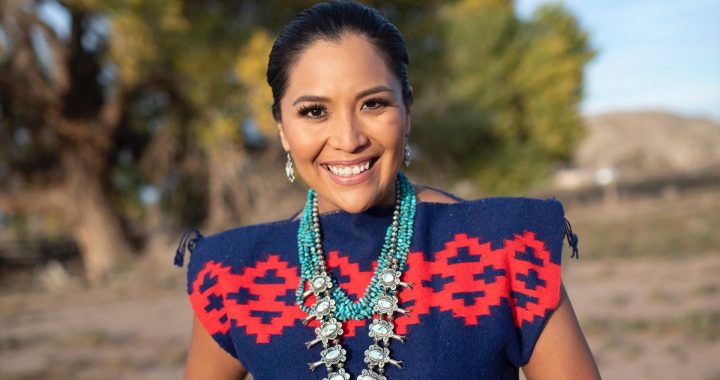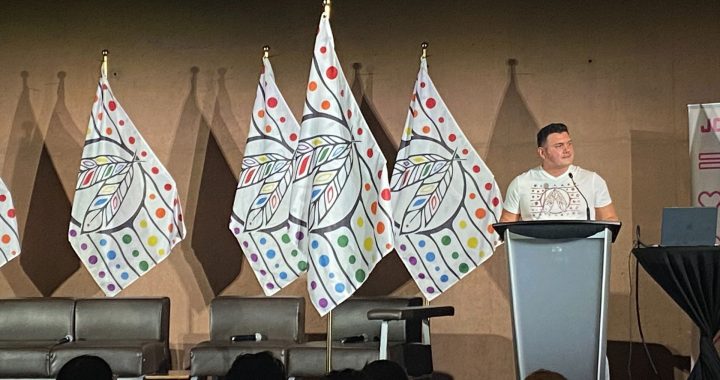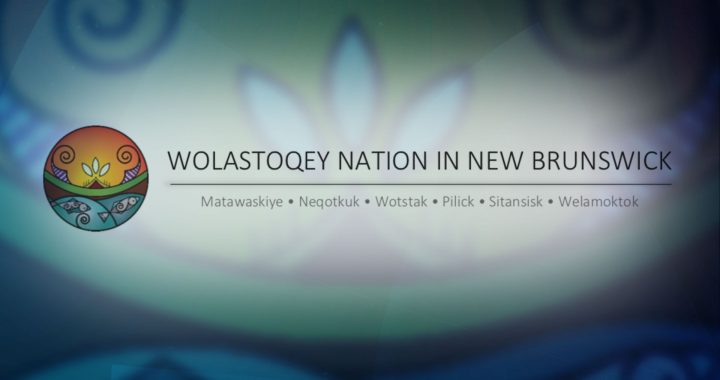With Quebec still refusing to adopt Joyce’s Principle – an Atikamekw-authored plan to reform health care – the community of Manawan kicked their pressure tactics up a notch this week by filing a series of human rights complaints with the United Nations.
“We want to put pressure on both the federal and the Quebec government to recognize systemic racism,” said Sipi Flamand, deputy chief of Manawan.
The dispatch of five letters addressed to five U.N. special advisors was timed to coincide with International Women’s Day.
Flamand says Joyce Echaquan’s last moments constitute a clear example of both medical racism and racism against Indigenous women.
He believes both tiers of government are failing to respect commitments to improve health care for First Nations.
“It’s for this reason we want to push the Joyce Echaquan story further,” Flamand told APTN’s Nouvelles Nationales.
“She cried out over social media, and now we want her voice to resonate at an international level,” he added.
The Atikamekw National Council presented Joyce’s Principle to Quebec officials in November 2020, almost two months following the death of its namesake.
The 37-year-old mother of seven died at Joliette hospital east of Montreal in September after livestreaming racist remarks made by her caregivers.
Following Joyce’s death, Quebec secured a multi-million-dollar investment to train cultural navigators for the province’s hospitals.
The province recently announced that a member of the Atikamekw Nation will be appointed to a new liaison position at the public health board overseeing the Joliette hospital.
According to a government-issued press release, “mandatory” cultural sensitivity training for health board employees will begin “in the next few weeks.
“The government is listening, and this is only the beginning of the paradigm shift that we want to achieve together,” Indigenous Affairs Minister Ian Lafreniere said in a statement on Feb. 25.
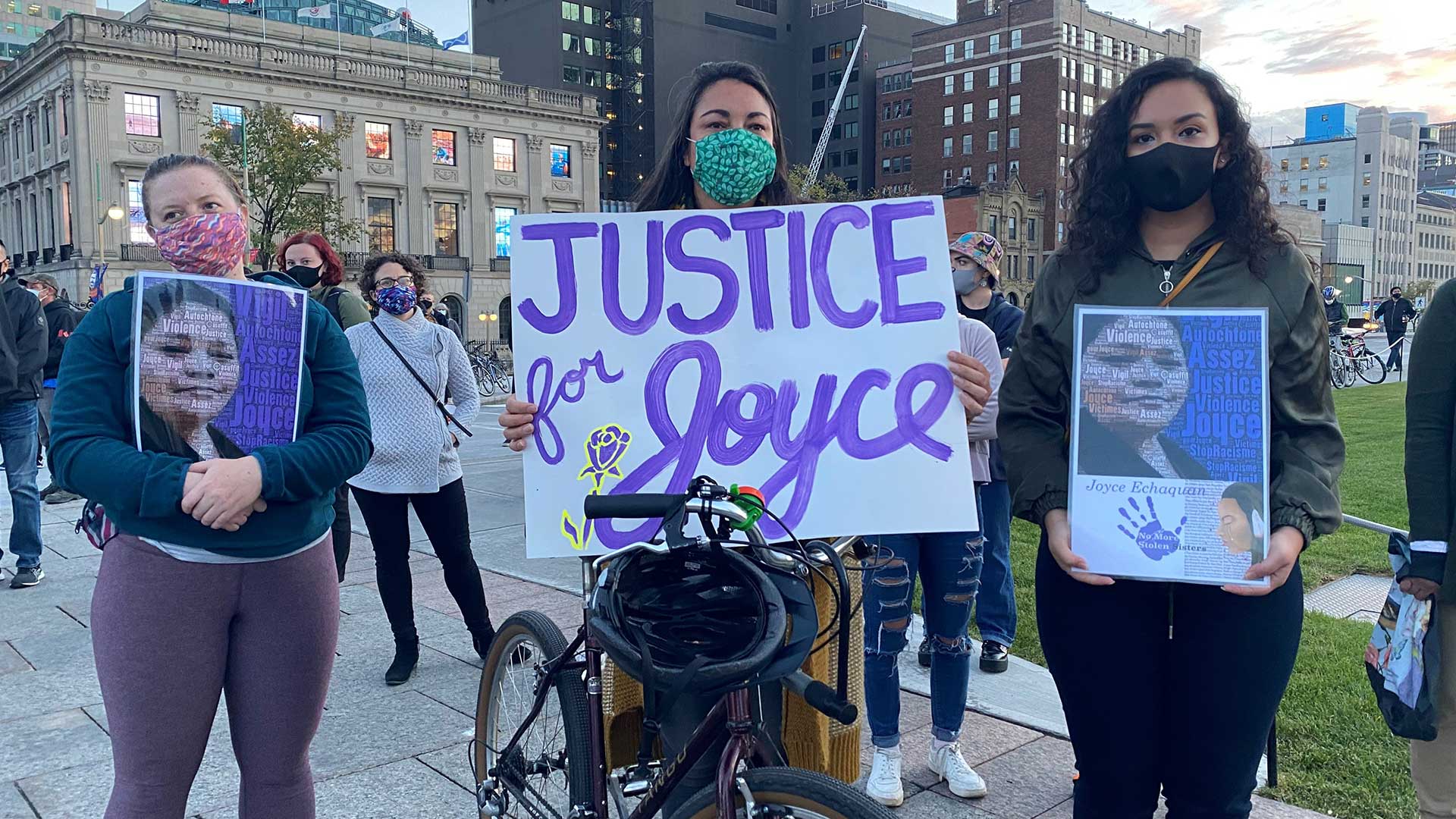
There was less progress, however, in the application of Joyce’s Principle in the months following its release.
Quebec said they supported the content of Joyce’s Principle, but disagree with its call to recognize and address issues with “systemic racism.”
A late-November attempt to have Joyce’s Principle adopted as policy in Quebec’s National Assembly also fell flat due to objections over use of the term.
Anne Levesque, an assistant law professor at the University of Ottawa, helped the Atikamekw of Manawan to draft and distribute their formal complaints to the U.N.
While the U.N. can’t force a reaction from either Quebec or Canada, Levesque says escalating the case in this way forces a change in conversation.
“When we use human rights mechanisms, what it does is that it changes the debate,” Levesque explained. “It’s no longer a question of politics: it’s a question of rights and legal obligations.”
Levesque said the Echaquan case runs the gamut of human rights issues.
“We addressed the U.N. Special Advisor on violence against women, the Special Advisor on Indigenous Peoples, the Special Advisor for health care, the advisor for minorities [and] the Special Advisor for the fight against racism and racial discrimination,” she added.
Despite the systemic racism stalemate within Quebec, the federal government said it’s doing its part to support the Atikamekw in their endeavour.
In mid-February, responding to the back-and-forth between the Atikamekw National Council and the Quebec provincial government, the feds allocated an additional $2 million to officials in Manawan to help them continue advocating for the plan.
“When I look at [Manawan’s move], I think ‘good.’ This is their right, and they’re choosing to recognize it,” Miller told reporters during a press conference on Monday.
“I think we have to recognize that this is where we are as a country,” Miller added. “I think it’s a sign of maturity for Canada to recognize we’re not perfect, that we’ve got a heck of a lot of work to do.”
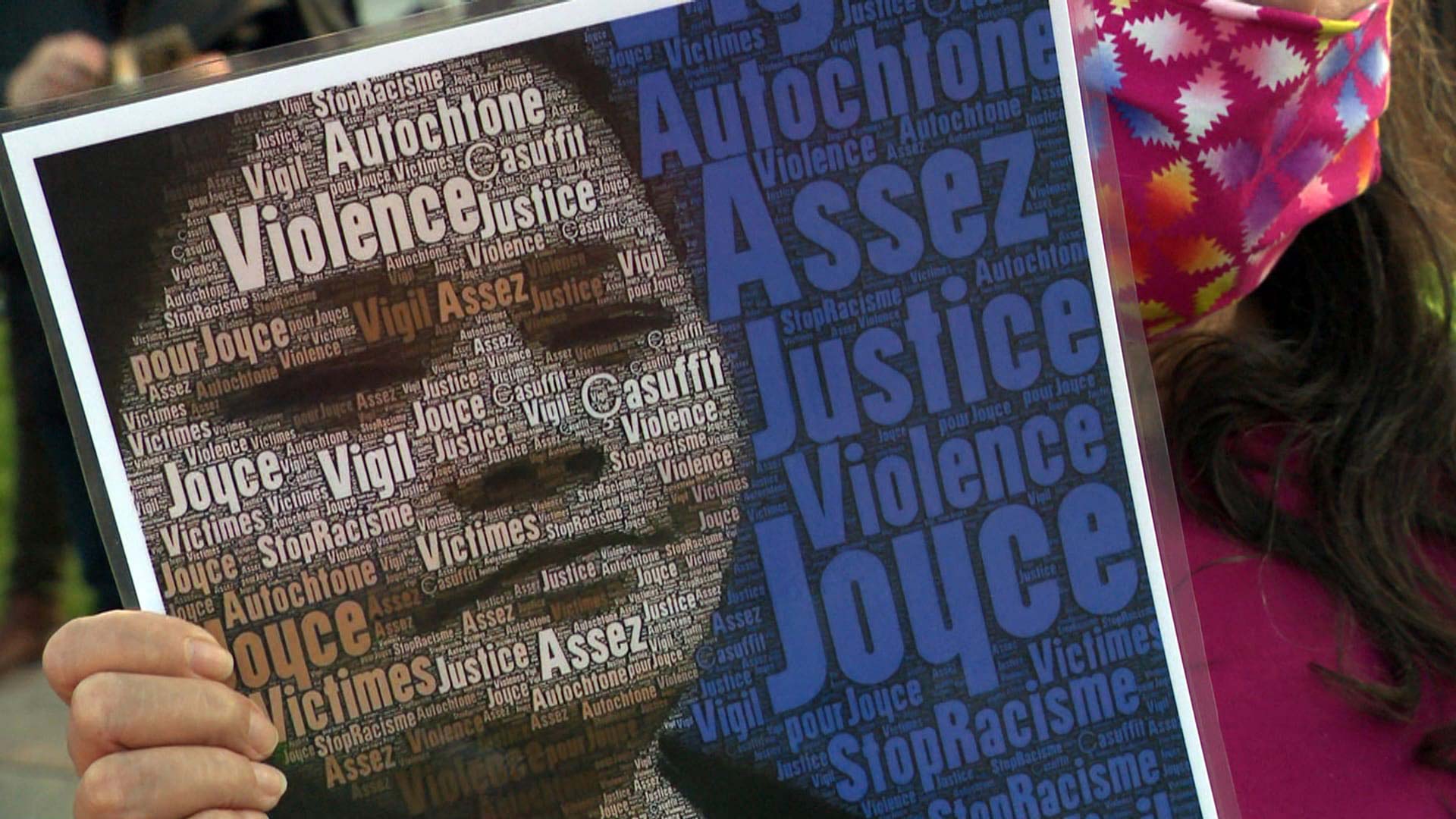
Miller specified that Joyce’s Principle – and racism in health care – are both on the federal government’s radar despite the debate currently waging in Quebec.
“I’ve heard encouraging signs from many provinces that they’re willing to move on a principle-based approach, so I’m very hopeful,” he added.
“I’ve said time and time again I disagree with Quebec’s assessment about systemic racism. But I’ve also seen flickers of hope and concrete action from the government of Quebec in willing to address this,” Miller said.
“There’s much more work to do. If everyone thinks that there’s a short-term fix, they’re not understanding the problem.”
The Quebec Premier and the Minister of Indigenous Affairs have not commented on Manawan’s appeal to the United Nations.






